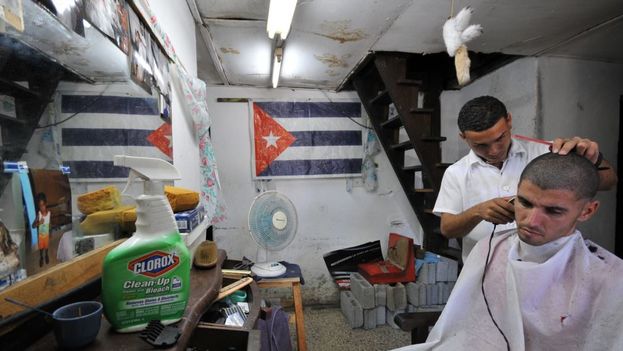
![]() EFE, via 14ymedio, Havana, 14 January 2017 — Cuba registered a total of 397 private cooperatives – in culinary, personal and technical services – a form of economic management created in 2012 that is still in the experimental phase, sources said Friday during a national workshop to analyze their operation.
EFE, via 14ymedio, Havana, 14 January 2017 — Cuba registered a total of 397 private cooperatives – in culinary, personal and technical services – a form of economic management created in 2012 that is still in the experimental phase, sources said Friday during a national workshop to analyze their operation.
Non-agricultural cooperatives have been formed in sectors such as trade, gastronomy, passenger transport and cargo movement and associated services, with construction, industry, food, energy and accounting activities, according to a report from the state agency Press Latina.
The experiment of autonomous cooperatives focus on activities that offer solutions to local development and contribute to the well-being of the population, based on principles that are in line with international best practices, said Grisel Tristá, a member of the Commission for the implementation and development of the economic reforms approved by the Cuban Government.
At present, 62% (248) of the private cooperatives operate in the areas of commerce, gastronomy, technical and professional services; 17.4% (69) in construction; and 8.5% (33) work in the industrial branch, according to data cited by the official.
Cuba closed the year 2016 with more than 535,000 private or non-state registered workers, according to the latest data released by the Ministry of Labor and Social Security
As he explained, the test of this form of economic management that operates with self-employed workers continues in order to “consolidate” the structures authorized by the Government, with the aim of “validating concepts and practical knowledge” that will allow them “to increase in scope” in the future within the economic structure of the country.
Tristá also mentioned that 93 of the total number of cooperatives approved by the Council of Ministers remain to be constituted, most of them related to the administration of state eating establishments in Havana, a measure that is being gradually applied in order to improve service in that activity.
This workshop on non-agricultural cooperatives, which will conclude this Saturday, examines, among other issues, the linking of producers and wholesale markets with cooperatives, training of members, application of legal rules and labor unions in cooperatives.
Among the most debated topics are the poor mechanisms for the training of partners and the problems with the supply of products in the wholesale markets, according to official media.
Cuba ended 2016 with more than 535,000 registered private or non-state workers, according to the latest data released by the Ministry of Labor and Social Security.
